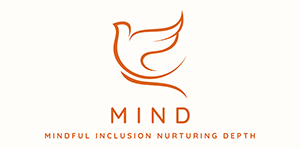In today’s hyperconnected world, social media has become more than just a place to stay in touch with friends—it’s where we laugh, learn, rage, celebrate, and sometimes… compare, scroll endlessly, and spiral into self-doubt. While it offers a sense of connection and community, it also subtly and profoundly impacts our mental well-being.
Let’s take a mindful look at how social media affects our mental health, through real-life examples, scientific insights, and gentle practices to help us find balance.
🌪️ The Comparison Trap: “Everyone Else Has It Better”
Example:
A young woman, Rhea, finds herself feeling anxious every night after scrolling through Instagram. Her feed is full of influencers traveling the world, friends announcing promotions, and acquaintances getting married. Although her own life is rich with quiet growth and creativity, she begins to feel like she’s falling behind.
What’s Happening:
Social media often shows a highlights reel, not the full movie. This curated reality tricks the brain into thinking others are living “perfect” lives while ours seem mundane. This can lead to chronic dissatisfaction, low self-worth, and depressive symptoms.
Mindful Tip: Pause before you scroll. Ask yourself, “Am I in a good space emotionally to engage right now?” Set a 10-minute timer. And try posting consciously, not performatively.
📈 Dopamine and the “Like” Addiction
Example:
A teenager, Aarav, finds himself obsessively checking how many likes his recent post has received. If it performs well, he feels validated. If not, he spends hours tweaking future content or deleting it altogether. His mood rises and falls based on digital approval.
What’s Happening:
Social media platforms are designed to release dopamine—the “feel-good” brain chemical—when we receive likes, comments, or followers. Over time, our self-esteem becomes tethered to external validation. This can increase anxiety, reduce attention span, and create a dependence on screens for emotional fulfillment.
Mindful Tip: Journal your feelings before and after posting. Notice any attachment to feedback. Affirm your worth internally before seeking it externally.
💬 Toxic Positivity and Mental Health Silencing
Example:
Meera, who’s dealing with anxiety, opens up online. The responses are full of “Just smile more!”, “It’s all in your head”, or “Stay positive”. She feels dismissed rather than supported.
What’s Happening:
While positivity can be powerful, toxic positivity invalidates genuine struggle. Social media often favors upbeat, aesthetic-friendly messaging—even when deeper emotional support is needed. This leads many to feel unsafe sharing their truth.
Mindful Tip: Be a safe space online. Validate emotions, listen deeply, and avoid platitudes. If someone opens up to you digitally, respond the way you would if they were sitting across from you.
🧠 FOMO, Doomscrolling, and Anxiety
Example:
During exam season, Dev keeps scrolling through updates about parties, product launches, and global crises. He feels guilty for not being productive, jealous of others’ fun, and overwhelmed by the state of the world. He can’t sleep well.
What’s Happening:
This is a blend of FOMO (Fear of Missing Out) and doomscrolling—compulsively consuming negative news. This combo can heighten anxiety, disturb sleep, and create a sense of helplessness.
Mindful Tip: Schedule specific “scrolling hours” and unfollow accounts that trigger stress. Replace screen time before bed with mindful reading or gentle breathwork.
🌿 Healing Through Digital Mindfulness
Despite the challenges, social media can also be a source of inspiration and healing—if we engage mindfully.
Real-world healing use of social media:
A grief support page offering validation to thousands.
A mental health creator sharing coping techniques that helped a teen navigate a panic attack.
Communities like Nurturing Mindfulness, fostering safe, inclusive spaces for mental well-being.
Mindful Practice:
Try a 30-day social media cleanse where you only follow accounts that uplift and educate. Notice the emotional shift.
🌈 Conclusion: You Are More Than Your Feed
Your value isn’t determined by likes, stories, or hashtags. Social media can either disconnect us from ourselves—or it can be used to reconnect, reflect, and grow.
Let’s create a digital world that mirrors our real values: compassion, authenticity, and mindful awareness.
